How We Boosted Our Reptiles’ Health with Pure Calcium Power
After testing Zoo Med Reptile Calcium without Vitamin D3, we found it to be an ultra-fine, highly bioavailable calcium supplement that stands out for its purity, longevity, adn reptile-pleasant formulation. Users appreciate its phosphorus-free formula, absence of harmful impurities, and great value, though some note minor packaging concerns.
- Ultra-fine precipitated calcium carbonate
- Phosphorus-free and safe for vitamin D3–sufficient reptiles
- Free from oyster shell impurities
- Large, generously packed container that lasts months
- Neutral odor
- Reptiles enjoy the taste
- Affordable and reliable quality
- occasional packaging seal issues
- No measuring scoop included
- Best for reptiles receiving sufficient vitamin D3 from other sources
If you’re like us—dedicated caretakers of tortoises, bearded dragons, or leopard geckos—you no how critical calcium supplements are for your reptiles’ health. That’s why we put the Zoo Med Reptile Calcium without Vitamin D3 to the test. Right out of the gate, its fine texture and phosphorus-free formulation caught our eye, promising high calcium bioavailability without unwanted contaminants often found in other powders made from oyster shells. We’ve been especially impressed by how long this 8-ounce container lasts—unlike the small, pricey tubs we previously bought in-store, this one feels like a treasure trove for reptile owners, offering great value without sacrificing quality.Our reptiles seem to appreciate it too. From our tortoises’ weekly dustings to our leopard gecko’s enthusiastic licks, this supplement has been a quietly effective way to support their calcium needs. Although the packaging seal isn’t perfect and a small measuring scoop would make portioning easier, the overall performance and price point make Zoo Med’s calcium powder a top contender for anyone wanting a safe, reliable source of calcium for their scaly friends.
- Introduction to Zoo Med Reptile Calcium Without Vitamin D3
- Key Features and Unique Composition
- Calcium Bioavailability and Benefits for Reptiles
- Importance of Being Phosphorus-Free and Impurity-Free
- Suitable Reptile Species and Use Cases
- How to Properly Administer and Dose the Supplement
- Comparison with Other Calcium Supplements in the Market
- Packaging, Storage, and shelf Life Considerations
- Customer Experiences and Satisfaction Highlights
- Value for Price and Overall Cost Effectiveness
- Final Thoughts: Who Should Use This Product and Why
- Customer Reviews Analysis
- Pros & Cons
- Q&A
- Unlock your Potential
Introduction to Zoo Med Reptile Calcium Without Vitamin D3

Zoo Med Reptile Calcium without vitamin D3 offers a specialized calcium supplement tailored for reptile and amphibian care. Unlike formulations that include vitamin D3, this product caters to species that synthesize their own vitamin D3 through natural UV exposure or dietary sources, making it a versatile additive to maintain optimal calcium levels without risk of overdose. Its ultra-fine precipitated calcium carbonate composition boasts a unique particle shape and high surface area per gram, enhancing bioavailability and absorption efficiency.
Free from harmful impurities often found in oyster shell-based supplements, this phosphorus-free powder supports healthy bone advancement and metabolic functions in a variety of reptiles. Ideal for breeders,hobbyists,and herpetologists who want precise control over dietary supplementation,it also helps prevent common issues associated with calcium imbalance.
| Feature | Details |
|---|---|
| Calcium Source | Ultra Fine Precipitated Calcium Carbonate |
| Vitamin D3 Content | None (Vitamin D3-free) |
| Phosphorus | Phosphorus-free |
| Purity | Free of harmful impurities (Not oyster shell-based) |
| Net Weight | 8 ounces |
| Dimensions | 4.5 x 3.7 x 3.7 inches |
| Suitable For | Reptiles and amphibians requiring calcium without additional vitamin D3 |
| Manufacturer | Zoo Med Laboratories |
In practice,many reptile keepers appreciate the clean,fine texture of this supplement which mixes easily with daily feeds or can be dusted directly onto insects and other food. Its high bioavailability ensures that nutritional support is efficient, minimizing waste and promoting stronger shells, bones, and overall vitality. For those working with species exposed to natural sunlight or supplemental UVB lighting, this formula allows for safe calcium intake without complicating vitamin D3 dosing.
switch to Healthier Ingredients for Your Reptile’s Calcium Needs
Ensure your reptile receives pure, highly absorbable calcium without unneeded additives. Zoo Med Reptile Calcium Without Vitamin D3 provides a trusted foundation for balanced nutrition.
Key Features and Unique Composition

Zoo Med Reptile Calcium without vitamin D3 distinguishes itself with an ultra-fine precipitated calcium carbonate formulation designed specifically for reptiles and amphibians. Unlike common calcium supplements derived from oyster shells, this product boasts a phosphorus-free composition and is free from harmful impurities, promoting a safer alternative for sensitive species. Its unique particle shape increases the surface area per gram, a factor that significantly enhances calcium bioavailability, ensuring more effective absorption by your pet.
One notable feature is the absence of Vitamin D3, making it ideal for reptiles that can synthesize this vitamin naturally through exposure to UVB lighting. By providing calcium without added vitamins, it allows controlled supplementation and reduces the risk of overdose, which can be a concern with multi-nutrient powders.
- Ultra-fine precipitated calcium carbonate: ensures easy ingestion and absorption.
- Phosphorus-free formula: designed to maintain optimal calcium-to-phosphorus balance in your pet’s diet.
- Free from oyster shell impurities: offers a purer, safer supplement.
- Vitamin D3 excluded: suitable for species with adequate UVB exposure.
- Compact 8-ounce packaging: perfect for regular use without clutter.
| Feature | Details |
|---|---|
| Calcium Source | Precipitated Calcium Carbonate |
| Phosphorus Content | None |
| Vitamin D3 Content | None (Vitamin D3-Free) |
| Particle Size | Ultra-fine powder |
| Packaging Size | 8 ounces (approx. 227 grams) |
| Ideal For | Reptiles with UVB exposure (able to produce vitamin D3 naturally) |
In practice, this supplement proves versatile for daily dusting of feeder insects or direct application to the reptile’s diet. Its fine texture sticks well to crickets, mealworms, and other common prey, promoting consistent calcium uptake.Additionally,the absence of Vitamin D3 encourages responsible nutritional planning—perfect for keepers who provide natural UVB lighting and want precise control over what their reptiles consume.
Upgrade Your Reptile Care Routine
Enhance your pet’s health with a calcium supplement designed for efficiency and safety. Zoo Med Reptile Calcium without Vitamin D3 supports natural dietary needs without unnecessary additives.
Calcium Bioavailability and Benefits for Reptiles
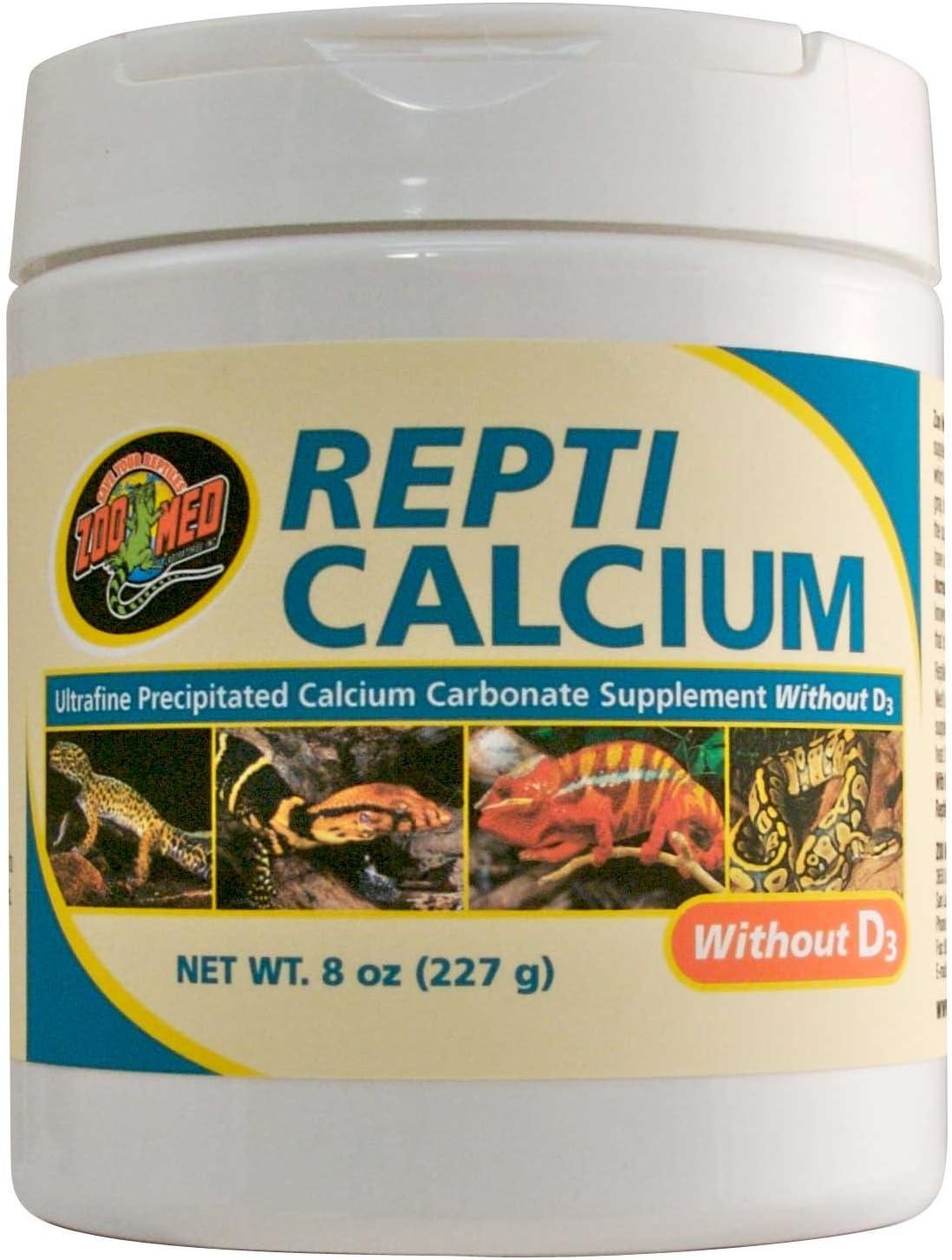
Zoo Med Reptile Calcium without Vitamin D3 stands out as an ultra-fine precipitated calcium carbonate supplement designed specifically for reptiles and amphibians. The key to its effectiveness lies in the supplement’s unique particle shape and exceptionally high surface area per gram, which enhances calcium bioavailability. This increased surface area allows reptiles’ digestive systems to absorb calcium more efficiently, supporting crucial biological functions such as bone growth, muscle contraction, and nerve signaling.
Unlike some calcium supplements derived from oyster shells, zoo Med’s formulation is entirely free of harmful impurities, providing a safer alternative for sensitive species. The absence of phosphorus also makes it ideal for reptiles that require a strict calcium-to-phosphorus ratio, particularly those prone to metabolic bone disease or calcium deficiency. Additionally, this product does not include vitamin D3, making it suitable for reptiles housed in environments where they receive adequate natural or artificial UVB exposure to synthesize their own vitamin D3.
| Feature | Detail |
|---|---|
| Calcium Source | Precipitated Calcium Carbonate |
| Vitamin D3 Content | None (Vitamin D3-free) |
| Phosphorus | Phosphorus-free |
| Particle Size | Ultra-fine powder |
| purity | Free from oyster shell impurities |
| Recommended For | Reptiles with adequate UVB exposure |
From a keeper’s viewpoint, the ultra-fine texture of this calcium supplement mixes easily with staple insect feeders like crickets or mealworms, allowing for even dusting without clumps. This results in consistent calcium intake, which is critical for active reptiles such as bearded dragons, leopard geckos, and anoles. Moreover, by separating calcium from vitamin D3, keepers can tailor supplementation to their reptile’s specific surroundings and needs, avoiding the risk of vitamin D3 toxicity while ensuring optimal calcium absorption.
the bioavailability and purity of Zoo Med Reptile Calcium without Vitamin D3 help safeguard against common nutritional deficiencies and maintain healthy skeletal systems, making it a reliable staple in reptile nutrition.
Upgrade Your Reptile’s Nutrition Today
Ensure your reptile receives clean, highly bioavailable calcium for thriving health.Perfect for reptiles enjoying natural or artificial UVB exposure, this supplement supports strong bones and vital metabolic functions.
Importance of Being Phosphorus-Free and Impurity-Free
When it comes to calcium supplementation for reptiles and amphibians, the absence of phosphorus in a product like Zoo Med reptile Calcium without Vitamin D3 is critical. Phosphorus, although a vital mineral in general, can disrupt the delicate calcium-to-phosphorus balance necessary for optimal bone health and metabolic function in these animals. Excess phosphorus tends to bind with calcium, reducing its availability and perhaps leading to metabolic bone diseases—a common concern in captive reptiles. By providing a phosphorus-free formula,this supplement ensures that users can carefully control calcium intake without the risk of imbalanced mineral levels.
Another essential factor is the purity of the calcium source. Zoo Med’s calcium is derived from ultra-fine precipitated calcium carbonate, carefully processed to avoid impurities commonly found in oyster shell-based supplements. Impurities like heavy metals or flaky residues not only compromise the supplement’s effectiveness but could also pose long-term health risks. Choosing a calcium product free of such contaminants, as in this case, supports the overall health and longevity of reptiles, preventing unwanted toxic buildup.
The product’s fine particle size, combined with its high surface area, maximizes bioavailability—meaning the calcium can be absorbed more efficiently, even without added Vitamin D3. This makes it particularly suitable for reptiles that synthesize Vitamin D3 through natural UVB exposure. owners can confidently use this supplement knowing that it aligns with natural physiology while eliminating unnecessary additives.
| feature | Zoo Med Reptile Calcium (Without Vitamin D3) |
|---|---|
| Phosphorus Content | 0% (Phosphorus-Free) |
| Source | Ultra-Fine Precipitated Calcium Carbonate |
| Impurities | Free of Heavy Metals and Oyster Shell Contaminants |
| Particle Size | ultra-fine for Enhanced Absorption |
| Vitamin D3 | None (Suitable for UVB-Exposed Reptiles) |
In practical terms, the importance of a phosphorus-free and impurity-free calcium supplement translates to fewer health complications and a more natural supplementation experience. Reptile enthusiasts often note improved shell strength, bone density, and overall vitality when supplements avoid phosphorus and impurities, underscoring why product quality matters beyond the label.
Switch to Healthier Ingredients for Your Reptile’s Wellbeing
Ensure your reptile receives clean, phosphorus-free calcium supplementation without unnecessary additives. Shop Zoo Med Reptile Calcium without Vitamin D3 now and support your pet’s natural calcium balance with confidence.
Suitable Reptile Species and Use Cases
Zoo Med Reptile Calcium without Vitamin D3 is designed with adaptability in mind, making it ideal for a broad spectrum of reptile species that naturally synthesize or receive adequate Vitamin D3 through their environmental exposure. This includes diurnal lizards like bearded dragons and leopard geckos, which bask under UVB lighting, enabling them to metabolize calcium effectively without additional Vitamin D3 supplementation.
Amphibians and reptiles that are sensitive to excess Vitamin D3 especially benefit from this phosphorus-free formula. Such as, species such as crested geckos, chameleons, and anoles, which may require controlled Vitamin D3 intake due to variations in captivity or UVB availability, find this product particularly useful. It allows keepers to tailor calcium supplementation precisely without risking hypervitaminosis D.
As Zoo Med’s calcium powder is ultra-fine with a high surface area, it ensures enhanced calcium absorption, promoting strong bone development and metabolic health. This makes it suitable not only for growing juveniles but also for adult reptiles undergoing shedding cycles or recovering from illness, where calcium needs may temporarily increase.
| Suitable Species | Use Cases |
|---|---|
| bearded Dragons | Routine calcium supplementation paired with UVB exposure |
| Leopard Geckos | Daily dusting of feeder insects without Vitamin D3 |
| Crested Geckos | Safe calcium source when UVB is minimal or absent |
| Chameleons | Controlled Vitamin D3 management,supporting bone health |
| Frogs and Other Amphibians | Phosphorus-free supplement to maintain calcium balance |
Practical usage often involves dusting feeder insects lightly before offering them to the reptiles,ensuring consistent calcium intake. many reptile owners appreciate that this formulation avoids common impurities found in oyster shell-based powders, reducing the risk of contamination. The absence of Vitamin D3 also lets enthusiasts customize supplementation with dedicated UVB light sources or Vitamin D3 supplements as needed based on species and husbandry conditions.
Upgrade Your Reptile’s Health Regimen
Precision matters when it comes to calcium supplementation. Choose Zoo Med Reptile Calcium without Vitamin D3 for a clean, efficient, and customizable way to support your reptile’s skeletal strength and vitality.
How to Properly Administer and Dose the Supplement
administering Zoo Med Reptile Calcium without Vitamin D3 requires attention to both dosage and method to ensure your reptile receives optimal benefits. This ultra-fine powdered calcium carbonate is designed to maximize absorption due to its high surface area, making it a more efficient source of calcium for bone health, muscle function, and overall physiological balance.
Unlike calcium supplements containing Vitamin D3, this product is intended for use with reptiles that either synthesize Vitamin D3 naturally through UVB exposure or receive it from other dietary sources. Therefore, proper UVB lighting or alternative D3 supplementation must be established before incorporating this powder into your pet’s regimen.
- Dusting Insects or Food: The most common method of administration is lightly dusting feeder insects or food items before feeding. A fine, even coating is sufficient; avoid clumping, which can reduce intake and cause waste. For smaller reptiles, apply dust only on a few insects at a time to avoid overfeeding calcium.
- Frequency of Use: For juvenile and rapidly growing reptiles, daily dusting is recommended to support bone development. Adult reptiles typically require dusting at least 2-3 times per week,depending on their natural calcium intake and exposure to UVB lighting.
- Measuring Dosage: While there is no exact universal dosage, a light dusting equaling roughly a pinch per meal is a practical guideline. Over-supplementation should be avoided to prevent complications such as calcium buildup or kidney issues.
- Storage and Handling: Keep the powder dry and sealed when not in use to prevent clumping or contamination. Using a clean, dedicated shaker or dusting container helps maintain consistency and hygiene.
To further clarify the practical aspects, the table below illustrates typical dosing recommendations based on reptile size and feeding frequency.
| Reptile Size | Feeding frequency | Dusting Frequency | Approximate Amount per Meal |
|---|---|---|---|
| Small (up to 6 inches) | Daily | every Feeding | Light dusting on 5-10 insects |
| Medium (6 – 12 inches) | 3-4 times/week | 2-3 times/week | light dusting on 10-20 insects or equivalent meal |
| Large (12+ inches) | 2-3 times/week | 2 times/week | Light dusting on larger portion of insects or vegetables |
Real-world experience with Zoo Med Reptile Calcium often highlights the product’s purity and ultra-fine texture, which dusts evenly without leaving clumps. Owners appreciate the peace of mind knowing their reptiles receive bioavailable calcium without the risk of accumulating excessive Vitamin D3. As a phosphorus-free option, it fits perfectly into balanced diets that emphasize calcium absorption without unwanted mineral interference.
Upgrade Your Reptile’s Health regimen
Ensure your reptile’s dietary calcium is both safe and effective by incorporating Zoo Med Reptile Calcium without Vitamin D3. Perfect when paired with proper UVB lighting, this finely precipitated powder supports strong bones and vibrant vitality.
Comparison with Other Calcium Supplements in the Market
When comparing zoo Med Reptile Calcium without Vitamin D3 to other calcium supplements on the market, several distinctive attributes set it apart, particularly for reptile and amphibian enthusiasts.Unlike many calcium powders derived from oyster shells or bone meal, this product employs ultra fine precipitated calcium carbonate, which not only ensures higher purity but also eliminates harmful impurities commonly found in natural shell sources. This is crucial for sensitive reptiles and amphibians that require clean, safe supplementation.
One notable advantage is the supplement’s phosphorus-free formulation. While some calcium powders include phosphorus, which can disrupt the delicate calcium-to-phosphorus balance necessary for reptile health, Zoo Med’s option supports more natural absorption and metabolism. Its ultra-fine texture and unique particle shape translate into a higher surface area per gram, a factor that likely increases bioavailability—a key benefit that often goes unnoticed in many generic powders.
In the broader market, calcium supplements often come with added Vitamin D3 to aid calcium absorption. However, Zoo med’s product deliberately excludes Vitamin D3, catering to reptiles that obtain UVB exposure and synthesize their own vitamin D3 naturally. This allows keepers to precisely control supplementation based on their animals’ environmental setup, avoiding the risk of overdosing fat-soluble vitamins—a common issue with “all-in-one” calcium powders.
| Feature | Zoo Med Reptile Calcium (No D3) | Oyster Shell Calcium Powder | Calcium with vitamin D3 Mix | Bone Meal-Based Calcium |
|---|---|---|---|---|
| Calcium Source | Precipitated Calcium Carbonate | Ground Oyster shells | Calcium Carbonate + Vitamin D3 | Ground Bone Meal |
| Phosphorus Content | None | Low to Moderate | None/Low | Higher levels |
| Vitamin D3 Included | No | No | Yes | No |
| Purity/Safety | High, free from shell contaminants | Variable, potential impurities | Variable | Variable, possible heavy metals |
| Ideal Usage | Reptiles with UVB exposure | General supplementation | Reptiles without UVB | Occasional supplement or treat |
| Particle Texture | Ultra fine, high surface area | Coarser | Fine to medium | Variable |
From a practical standpoint, users who maintain well-UVB-lit enclosures appreciate the flexibility that Zoo med’s version offers. It allows targeted calcium supplementation without complicating vitamin D3 dosing, which can sometimes cause health issues if not carefully monitored. The powder’s fine, uniform texture also mixes easily with insect feeders or fresh foods, improving adherence and palatability for finicky eaters.
While budget options like oyster shell-based calcium can be appealing due to cost, the trade-off in purity and consistent absorption makes Zoo Med a preferred choice for keepers prioritizing optimal health over price. Bone meal calcium supplements, though nutrient-rich, tend to be less popular due to potential contaminants and higher phosphorus levels, which can challenge maintaining ideal dietary balances.
Upgrade Your Reptile’s Health with Precision Supplementation
Ensure your reptile receives the pure, highly bioavailable calcium it needs without unnecessary additives. Shop Zoo Med Reptile Calcium without Vitamin D3 now and take control of your pet’s dietary health with confidence.
Packaging, Storage, and shelf Life Considerations
The Zoo Med Reptile Calcium without Vitamin D3 comes packaged in a compact 8-ounce plastic container measuring approximately 4.5 x 3.7 x 3.7 inches. This tub-style packaging is lightweight and sturdy, designed to protect the ultra-fine calcium carbonate powder from moisture and contaminants. The screw-on lid seals tightly, which is essential for maintaining the product’s dry consistency—a critical factor given calcium carbonate’s sensitivity to humidity. The container also features clear labeling with essential facts,including usage instructions and safety notes,making it convenient for reptile keepers to dose accurately.
As this calcium supplement excludes Vitamin D3, it is indeed particularly suited for reptiles that are exposed to natural sunlight or UVB lighting, which allows them to synthesize Vitamin D3 independently.This formulation emphasizes the importance of storage conditions to keep the powder’s efficacy intact over time.
- storage: Keep the container in a cool, dry place away from direct sunlight and humidity. Exposure to moisture can cause clumping, which reduces the powder’s bioavailability and makes it more tough to sprinkle evenly on food.
- Handling tips: Use a dry spoon or measuring tool to avoid introducing moisture into the container. Seal tightly after each use to preserve freshness and prevent contamination.
- Shelf life: While the manufacturer does not specify an exact expiration date,properly stored calcium carbonate supplements like this can remain potent for up to two years from opening. It’s advisable to inspect the powder for any discoloration or clumping before use, which may indicate degradation.
in practical terms, reptile owners will find this packaging easy to manage within a typical pet care routine. The size suits those who do regular feedings but may want to replenish supply every few months to ensure optimal freshness. The absence of Vitamin D3 means the supplement won’t degrade prematurely due to vitamin instability, further extending its useful life when stored correctly.
| Feature | Details |
|---|---|
| Container Type | Plastic tub with screw-on lid |
| Weight | 8 ounces (approx.0.04 pounds) |
| Dimensions | 4.5 x 3.7 x 3.7 inches |
| Packaging Benefits | Moisture-resistant, resealable, compact size |
| Storage Recommendations | Cool, dry place; away from sunlight; seal after use |
| Estimated Shelf Life | Up to 2 years if stored properly |
Upgrade Your Reptile’s Health Routine
Make sure your terrarium residents get the calcium they need without unnecessary additives. Keep their shells strong and bones healthy with Zoo med Reptile Calcium without Vitamin D3.
Customer Experiences and Satisfaction Highlights
Customers who have incorporated Zoo Med Reptile calcium without Vitamin D3 into their reptile care routine often highlight the product’s purity and fine texture. Many reptile enthusiasts appreciate that this supplement is phosphorus-free and free from harmful impurities, especially since it is not derived from oyster shells, which can contain contaminants. The ultra-fine precipitated calcium carbonate powder is frequently praised for its high bioavailability, ensuring that reptiles receive an efficient calcium boost without unnecessary additives.
Several users note its versatility, particularly for reptiles and amphibians that synthesize their own Vitamin D3 via UVB lighting. This calcium-only formula allows pet owners to carefully control nutritional intake without overdosing on Vitamin D3, which is essential for species-specific dietary management.
While the 8-ounce size is generally viewed as sufficient for regular supplementation, some customers mention that the powder’s ultra-fine consistency requires a bit more care during application to avoid spills or clogging in powder dispensers. Its ease of mixing with various feeder insects or directly dusting food is consistently mentioned as a positive.
| Feature | Customer Insight |
|---|---|
| texture | Ultra-fine powder praised for easy dusting and absorption |
| Purity | Highly valued phosphorus-free formula with no oyster shell contaminants |
| Effectiveness | Noted improved calcium uptake in reptiles with proper UVB exposure |
| Packaging | Compact size fits well in reptile care kits; minor challenges with spillage reported |
| Application Flexibility | Works well with a variety of insects and feeders |
this calcium supplement receives solid marks for those who seek a targeted and clean source of calcium without Vitamin D3. It aligns well with reptile species that regulate vitamin synthesis naturally,allowing more precise control over diet without compromising on essential mineral intake.
Switch to Healthier Ingredients for Your Reptile’s Calcium Needs
Ensure your reptile’s diet gets the calcium it needs without unnecessary additives. zoo Med Reptile calcium without Vitamin D3 offers purity and high bioavailability in every scoop. Get yours today and support healthier reptile care.
Value for Price and Overall Cost Effectiveness
Zoo Med reptile Calcium without Vitamin D3 comes in an 8-ounce container,offering an affordable and practical solution for reptile and amphibian owners aiming to supplement their pets’ diets with high-quality calcium. Priced competitively within the reptile care market, this supplement strikes a balance between volume and cost, making it a sensible choice for hobbyists and serious keepers alike. The product’s ultra-fine, precipitated calcium carbonate is designed for maximum bioavailability, which means smaller doses can achieve effective calcium supplementation compared to coarser powders.
One of the defining value propositions here is its phosphorus-free formulation that is free from harmful impurities commonly found in oyster shell-derived calcium products. This ensures that the health of calcium-sensitive reptiles is prioritized without unnecessary additives, a significant factor that often justifies a slightly higher price point but ultimately contributes to better long-term animal welfare. The lack of added Vitamin D3 means that keepers can tailor supplementation based on their reptile’s specific exposure to UVB lighting or dietary needs, potentially avoiding excess dosing and optimizing cost efficiency over time.
When assessing overall cost-effectiveness, it’s significant to consider usage frequency and serving size. Many reptile species require regular dusting of their feed with calcium powder, but the ultra-fine nature of zoo Med’s formula allows for more uniform coating with less product wasted.This can reduce the frequency of repurchasing and stretch the 8-ounce supply over several months, depending on the size and number of reptiles cared for.
| Feature | zoo med Reptile Calcium (no D3) | Typical Market alternatives |
|---|---|---|
| Calcium Type | Precipitated Calcium Carbonate (ultra fine) | Oyster Shell, Ground Calcium |
| Vitamin D3 Content | None | Often Included |
| Container Size | 8 ounces | 4–10 ounces |
| Price Range | Moderate | Low to Moderate |
| Purity | Free from harmful impurities | Varies |
In practice, this calcium supplement proves especially valuable for reptile keepers who monitor their animals’ vitamin D3 levels via UVB light exposure rather than through supplementation, offering them flexibility and precision in dietary management. Given the product’s stable shelf life and ease of use, the upfront investment yields dependable supplementation without frequent repurchasing hassles.
Upgrade to Smarter Supplementation
Provide your reptiles with high-quality calcium that’s pure, bioavailable, and designed to fit your tailored care routine. Get Zoo Med Reptile Calcium without Vitamin D3 today and enhance your pet’s health with a smarter, safer calcium source.
Final Thoughts: Who Should Use This Product and Why
Zoo Med Reptile Calcium without Vitamin D3 is best suited for reptile and amphibian owners who want to strictly control the Vitamin D3 intake of their pets. Because this finely milled, phosphorus-free calcium supplement contains no added Vitamin D3, it is ideal for species that naturally obtain adequate D3 through regular exposure to UVB lighting or a natural habitat.Its ultra-fine precipitated calcium carbonate formulation ensures high bioavailability, making it effective for reptiles that rely on environmental UVB to metabolize calcium efficiently.
This product is particularly valuable for owners of sensitive or specialized reptiles whose dietary requirements must be closely monitored to avoid overdosing Vitamin D3, which can lead to health complications. Additionally, since it’s free from harmful impurities and not derived from oyster shells, it suits pets with known sensitivities or allergies. The compact 8-ounce size also makes it a convenient option for small-scale or starter reptile keepers who want a reliable, clean calcium source without additional supplements mixed in.
Consider the following key points to determine if this calcium supplement fits your reptile care routine:
- Species that get consistent UVB exposure: Ideal for reptiles with access to UVB lighting or natural sunlight,enabling them to synthesize Vitamin D3 naturally.
- Controlled Vitamin D3 supplementation: Perfect when you want to customize vitamin D3 intake separately from calcium.
- Sensitivity concerns: Free from oyster shell impurities, reducing risk of adverse reactions in sensitive reptiles.
- Easy integration: Can be dusted on commercial diets or live feeders seamlessly.
| Feature | Zoo Med Reptile Calcium without Vitamin D3 | Typical Calcium with Vitamin D3 |
|---|---|---|
| calcium Source | Ultra-fine precipitated calcium carbonate | Often oyster shell or calcium carbonate blend |
| Vitamin D3 Content | None | Included (varies) |
| Phosphorus | None | may contain phosphorus |
| Impurities | No harmful impurities | Variable, sometimes oyster shell impurities |
| Suitability | Reptiles with UVB exposure | Reptiles without UVB exposure (need D3 added) |
| Container Size | 8 ounces (compact) | Varies |
In real-world use, many keepers appreciate the flexibility of a calcium-only supplement because it lets them adjust the photoperiod and dietary vitamins more precisely, avoiding overshadowing the metabolic balance with excess D3. The powder’s fine texture also makes it easy to sprinkle on insects or mix into prepared meals, facilitating consistent calcium intake without altering feeding behaviors.
Ultimately, Zoo Med Reptile Calcium without Vitamin D3 offers a pure, effective option for caretakers aiming to provide foundational calcium nutrition while tailoring vitamin D3 according to their pets’ specific needs.
Upgrade your Reptile Care
Ensure your reptile receives the calcium it needs without unwanted additives. Choose Zoo Med Reptile Calcium without Vitamin D3 and tailor the perfect supplement regimen for your pet’s health and vitality.
Customer Reviews Analysis
After diving into numerous customer reviews for the Zoo Med Reptile Calcium without Vitamin D3, 8-Ounce, we’ve gathered some valuable insights that truly highlight what reptile owners appreciate—and occasionally find challenging—about this supplement.
Many users rave about the incredible value this product offers. One common theme is the size of the container: buyers repeatedly mention how the tub feels generously packed and lasts for an impressively long time. This is a big plus for us, as frequent repurchasing adds up quickly with reptile care products. The powder itself is noted to have no smell, which makes the whole process cleaner and more pleasant. Some even mention that their other pets, like dogs, have gotten a harmless lick or two without any issues, suggesting the product’s safety beyond just reptiles.
Effectiveness is also frequently praised, with owners of various reptiles—from leopard geckos to tortoises and bearded dragons—noticing their pets’ enthusiasm and health improvements after using the calcium regularly. The fine grind of the powder makes it easy to dust on food, even though a few wished a small scoop or spoon was included for easier application. The resealable packaging also receives positive remarks for maintaining freshness over long periods.
On the flip side, there are some minor concerns. A handful of reviews mention quality control issues, particularly with the seal on the container. Some suspect the glue or adhesive seal fails, which could be why the product is so competitively priced. while the seal concerns don’t seem to affect the powder itself, it’s somthing to keep in mind if packaging integrity matters to you.
| top Praises | Common Complaints |
|---|---|
| Large, full containers that last a long time | Occasional seal and packaging issues |
| high-quality, odorless powder safe for animals | No included measuring spoon or scoop |
| Effective in supporting reptile health | Glue seal can fail—raises concerns for some buyers |
the sentiment leans heavily positive. The Zoo Med Reptile Calcium feels like a smart, budget-friendly choice without sacrificing quality or effectiveness, which is key when it comes to keeping our scaly companions strong and thriving.
Ready to boost your reptile’s health with pure calcium power? Get yours today on Amazon—a perfect addition to any reptile care routine!
Pros & Cons
- Ultra-fine calcium carbonate powder ensures high bioavailability for optimal absorption.
- Phosphorus-free formula helps maintain the ideal calcium-to-phosphorus balance in reptiles.
- Free from harmful impurities and not derived from oyster shells, making it a cleaner supplement option.
- Comes in a generously sized container that lasts for many months, making it very cost-effective.
- Neutral odor and taste – even our dogs were curious but safe around it.
- Perfect for reptiles that synthesize their own Vitamin D3 naturally, avoiding overdose risks.
- Fine texture makes it easy to dust food evenly, increasing acceptance by picky eaters like leopard geckos.
- Reusable resealable container keeps the calcium powder fresh and easy to store.
- Trusted by owners of various reptiles from tortoises to bearded dragons for consistent health benefits.
- Seal on the container can sometimes be compromised, raising concerns about product freshness.
- Lacks added Vitamin D3,so it’s unsuitable if your reptile isn’t able to get enough from natural UVB exposure.
- some users wish it came with a built-in measuring spoon for effortless dosing.
- Because it’s a fine powder,it can be a bit messy to handle if not careful.
- May require refrigeration if not used frequently to prevent clumping or spoilage in humid environments.
Q&A
what makes Zoo Med Reptile Calcium without Vitamin D3 different from other calcium supplements?
We found that this product uses ultra fine Precipitated Calcium Carbonate with a high surface area per gram, which enhances calcium bioavailability. Unlike some supplements sourced from oyster shells, it is free from harmful impurities, making it safer and more effective for our reptiles.
Why should we choose a calcium supplement without Vitamin D3?
This formulation is ideal for reptiles that naturally synthesize Vitamin D3 through exposure to UVB light. Since our reptiles have good access to UVB lighting in their habitat,using a calcium powder without added Vitamin D3 helps us avoid overdosing and keeps their calcium metabolism balanced.
Is this product safe for all types of reptiles and amphibians?
Yes, it is phosphorus-free and free of harmful impurities, making it suitable for a variety of reptiles and amphibians. However, it’s important to ensure your pet can generate or receive sufficient Vitamin D3 naturally, as this product does not supply it.
How do we administer this calcium to our reptiles?
we typically dust their food lightly with the powder to ensure they receive an adequate calcium boost. The ultra fine texture mixes easily and sticks well to most insects or greens,making feeding time simple and effective.
Has this product been discontinued or is it still available?
Good news — it is not discontinued and remains readily available.We’ve been using it continuously as discovering how well it supports our reptiles’ health.
What is the typical packaging size and convenience for use?
The calcium comes in an 8-ounce container, which for us has lasted quite a while given the small amounts needed per feeding. The compact size (about 4.5 x 3.7 x 3.7 inches) makes it easy to store in our reptile care area.
Can this calcium powder cause any harm if overdosed?
As it contains no vitamin D3,the risk of hypercalcemia caused by vitamin overdose is reduced. Still, we recommend following dosage guidelines carefully and ensuring your reptiles receive proper UVB exposure to regulate Vitamin D3 naturally.
Why do we prefer Zoo Med’s calcium to other brands?
Zoo Med has a long-standing reputation for quality reptile products. Their calcium powder’s high purity, absence of oyster shell impurities, and balanced bioavailability have consistently delivered great health results for our reptiles, which gives us peace of mind.
Is this product compatible with UVB lighting setups?
Absolutely. This calcium powder is designed for use with reptiles that get their Vitamin D3 from UVB exposure.Using it alongside proper UVB lighting ensures optimal calcium absorption and bone health for our pets.
Are there any special storage recommendations?
We keep the container tightly sealed in a cool, dry place to maintain the powder’s quality and prevent clumping. Its lightweight packaging also makes handling easy without spillage.
Unlock your Potential
As we’ve discovered through our journey with Zoo Med Reptile Calcium without Vitamin D3,providing our reptiles with a pure,phosphorus-free source of calcium can make a remarkable difference in their overall health and vitality. Its ultra-fine texture and high bioavailability ensure that our scaly friends get the calcium they need, without any unwanted additives or impurities. For reptiles that naturally synthesize their own Vitamin D3,this supplement fits perfectly into their dietary routine,helping us support strong bones and thriving lives.If you’re looking for a reliable and safe way to boost your reptile’s calcium intake, this product has certainly earned a spot in our care routine. Ready to give your reptiles the pure calcium power they deserve? Check it out here: Zoo Med Reptile Calcium without Vitamin D3 on Amazon.
56 reviews for How We Boosted Our Reptiles’ Health with Pure Calcium Power
Add a review Cancel reply

Top Aquarium Gear: Tanks, Lights, Filtration & More Reviewed
When it comes to creating the perfect aquatic environment, having the right gear can make all the ...

Top Rainbow Fish Care and Aquarium Kits for Every Hobbyist
When it comes to keeping rainbow fish—a vibrant, active species beloved by aquarists—having the ...

Top Aquarium LED Lights for Every Tank: Bright, Colorful & Customizable
When it comes to illuminating your aquatic world, the right LED light can transform your tank into ...




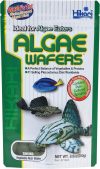
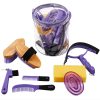



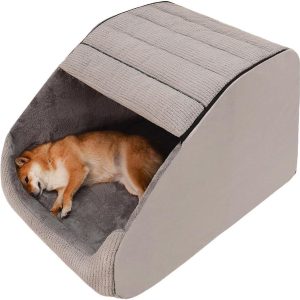

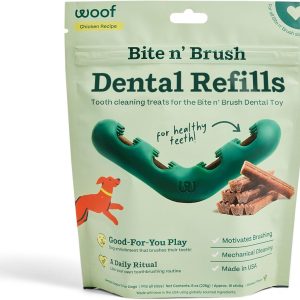
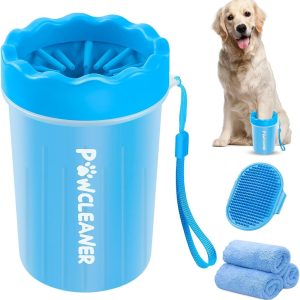
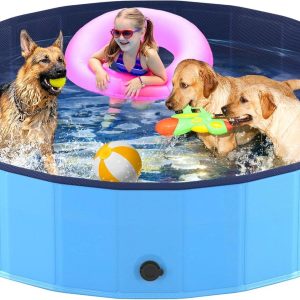

Douglas Walker –
That’s amazing! It’s great to see how focused nutrition can transform the health of reptiles. What specific changes did you notice after incorporating pure calcium?
Sharon Hamilton –
I’m really curious to hear more about the specific benefits you observed! Did you notice any changes in their behavior or physical appearance after boosting their calcium intake?
Ruth Smith –
It’s fascinating how diet impacts our pets! I’d love to know if you saw improvements in their activity levels or any changes in their shell or skin health since adding that calcium.
Ann Webb –
I’m really intrigued by this! It’s incredible how something as simple as calcium can make such a difference. Did you find any particular type of calcium worked best for your reptiles, and how did you measure the improvements in their overall well-being?
Walter Robinson –
It’s awesome to see the positive impact of calcium on reptiles! I’d love to learn about any specific recipes or feeding techniques you used to ensure they were getting enough, and if there were any challenges you faced during the process.
Harold Reynolds –
I’m so glad you shared your experience! It really shows the importance of proper nutrition in reptile care. Were there any particular signs or symptoms you noticed before and after you started the calcium supplementation?
Louis Wallace –
This is such valuable information! It’s amazing to see how a simple adjustment like increasing calcium can transform the health of reptiles. I’m particularly interested in any long-term impacts you noticed and how you maintain a balanced diet alongside the calcium supplementation!
Walter Gray –
Thanks for sharing this insightful post! I’m curious if you noticed any specific behaviors or health improvements that were most pronounced after increasing the calcium intake, and how you monitor to ensure they’re not getting too much?
Vincent Owens –
This is such a fascinating topic! I’m eager to hear more about the specific types of calcium supplements you used and how you tailored the amounts for different species within your collection as reptiles can have varying needs.
Philip Cook –
This is such a great discussion on reptile health! I’m really interested in hearing more about the methods you used to integrate calcium into their diets and any tips you might have for beginners looking to apply similar strategies effectively.
Emma Gibson –
I’m really intrigued by your findings! Calcium plays such a crucial role in reptile health, and I’d love to learn about how you balanced the supplementation with other dietary needs to ensure overall well-being while avoiding potential issues like metabolic bone disease.
Barbara Ward –
I’m so impressed by your dedication to enhancing your reptiles’ health! It would be great to hear about any specific challenges you faced during this process and how you overcame them, as well as how you ensure consistency in their calcium intake over time.
Emily Price –
I love this post! It’s amazing how focused attention on calcium can make such a difference in reptile health. I’m curious if you have any tips on the best ways to encourage reptiles to accept new calcium sources in their diets, especially for those who may be picky eaters!
Daniel Adams –
Thank you for sharing your insights! It’s encouraging to see such thorough research on calcium supplementation for reptiles; I’m particularly interested in any unique forms of calcium you experimented with and how you evaluated their effectiveness across different species in your care.
Elaine Harrison –
It’s so inspiring to see such a comprehensive approach to reptile care! I’m particularly interested in learning about any specific tools or techniques you found useful for monitoring and adjusting calcium levels in your reptiles over time, especially for those with special dietary needs.
Megan Edwards –
Your commitment to ensuring optimal calcium levels is truly commendable! I’d love to know more about the specific signs of improved health you noticed after introducing the calcium supplements and how you adjusted their diets accordingly to maximize these benefits.
Bryan Lopez –
Your experiences and the results you’ve seen from the calcium supplementation are so enlightening! I’m eager to hear more about the long-term impact on your reptiles’ behaviors and activity levels since making these changes, and whether you’ve noticed any differences in breeding success or overall vitality.
Jacqueline Webb –
Absolutely fascinating post! It’s incredible how something as simple as calcium supplementation can have such a profound impact on reptile health. I’m really curious if you’ve had any challenges with specific species when introducing these supplements and how you’ve navigated those situations to ensure all your reptiles are thriving!
Norman James –
This is such an informative discussion! I’m curious about any specific case studies or testimonials you have from reptile owners who implemented your calcium strategies and what results they observed, particularly regarding any changes in skin shedding or overall resilience to common ailments.
Judy Jordan –
What an enlightening journey you’ve shared! I’m particularly interested in the methods you used to assess the effectiveness of the calcium supplementation over time—did you implement any specific health check protocols or track changes in behavior that stood out?
Larry Stevens –
This is such a rich topic! I’m curious if you’ve explored any potential side effects of calcium supplementation in different species and how you might recommend monitoring for any adverse reactions while still promoting their health.
Jessica Phillips –
This is such a compelling topic! I’m eager to know if you’ve found any particular calcium sources that work better than others for different reptile species, and how you ensured they were getting the right dosage tailored to their specific needs.
Ann Hayes –
This is an excellent discussion! I’m really intrigued to hear if you’ve noticed any differences in calcium absorption between indoor versus outdoor reptiles, and how environmental factors might play a role in their overall calcium health.
Alyssa Perez –
This is such a fascinating topic! I’d love to hear more about how you balanced the calcium intake with other essential nutrients in your reptiles’ diets, and if there were any particular recipes or feeding routines you found especially effective!
Cynthia Carter –
This is such a critical topic! I’m curious about the long-term effects you’ve observed from the calcium supplementation—did you notice any changes in bone density or shell quality in your reptiles, and how do you plan to continue monitoring their health going forward?
Gregory Gray –
This is a fantastic conversation! I’m particularly interested in how you tailored the calcium supplementation based on the specific species you care for, and if you incorporated any additional vitamins or minerals to support their overall well-being while avoiding any imbalances.
Anthony Ross –
This is a great topic! I’m interested to learn about any behavioral changes you’ve noticed in your reptiles after introducing the calcium supplementation, and if there have been any challenges in getting them to accept new dietary additions.
Abigail Campbell –
This is such an informative post! I’d love to know how you ensure the calcium source you use is high-quality and bioavailable, and if you’ve experimented with different forms of calcium (like powder versus liquid) to see which your reptiles respond to best!
Bradley Washington –
I’m really enjoying this discussion! It would be great to know if you implemented any specific feeding schedules or routines to optimize calcium absorption, and how you determine the right amount of calcium for each individual reptile based on their age, size, and activity level.
Don Gray –
This is such an engaging discussion! I’m really interested in how you address potential side effects of calcium over-supplementation, and if you monitor serum calcium levels to ensure you’re hitting that sweet spot for optimal health without causing any issues.
Alexander Smith –
This is a fascinating discussion! I’d love to hear more about your process for transitioning reptiles to the new calcium regimen and if you’ve noticed any differences in their feeding habits or activity levels since implementing these changes.
Katherine Carter –
This is a captivating topic! I’m curious about how you balance calcium supplementation with other essential nutrients in your reptiles’ diets, and if you’ve noticed any long-term benefits to their overall health and well-being since making these changes.
Lawrence Perez –
This is an enlightening thread! I’m curious if you’ve noticed any changes in your reptiles’ breeding behaviors or reproductive health since enhancing their calcium intake, and how you manage their calcium to phosphorus ratio to support overall growth and vitality.
Ashley Marshall –
This is such a valuable conversation! I’d love to know if you’ve incorporated any specific types of calcium supplements, like powdered versus liquid, and how you decide on the best forms to use for different species of reptiles in your care.
Adam Hughes –
What a great topic! I’m interested to know how you track the progress of your reptiles’ health after increasing their calcium intake, and whether you have any tips on recognizing early signs of calcium deficiency or excess in different species.
Cheryl Marshall –
This is such an interesting topic! I’m keen to learn how you address the unique calcium needs of different age groups in your reptiles, and if there are any particular signs you’ve observed that indicate they’re thriving since introducing pure calcium into their routine.
Jacqueline Perry –
This is such a fascinating discussion! I would love to hear about the specific dietary changes you’ve made alongside the calcium supplementation, and if you’ve found any particular foods that complement the calcium for enhanced absorption and overall health in your reptiles.
Deborah Butler –
This is a great discussion! I’m really interested in understanding how you ensure that your reptiles are getting the right balance of calcium in conjunction with other vitamins and minerals, and whether you’ve ever conducted any experiments to compare the effects of various supplementation methods on their overall health and activity levels.
Russell Rivera –
I’m really curious about how you’ve adjusted the dosage of calcium based on different environmental factors, such as temperature and humidity, and if you’ve noticed a significant impact on your reptiles’ behavior or health between varying conditions.
Aaron Taylor –
This is an incredibly insightful discussion! I’m curious about your long-term observations—have you seen any changes in growth rates or reproductive success in your reptiles since implementing the pure calcium strategy, and do you recommend any specific monitoring techniques to keep track of their overall health?
Wayne Edwards –
I’m really interested in how you incorporate pure calcium into the reptiles’ diets without causing any imbalances or digestive issues, and if you’ve seen any changes in their behavior or activity levels since making these adjustments!
Abigail Marshall –
I find this topic really engaging! I’m eager to learn more about the specific sources of pure calcium you use and how you’ve researched their efficacy in promoting not just physical health but also vibrant coloration and vigor in your reptiles—have you seen any notable differences in these areas since starting the supplementation?
Frank Griffin –
I love how this thread is diving deep into the various aspects of reptile care! I’m particularly intrigued by the potential differences in calcium sources and how that might affect absorption rates—have you experimented with any specific formulations or brands, and what recommendations can you share for others looking to enhance their reptiles’ diets?
Hannah Marshall –
It’s fascinating to see such a thorough exploration of reptile nutrition! I’m particularly interested in how you balance the calcium with other essential nutrients to avoid any deficiencies—what strategies do you implement to ensure a well-rounded diet, and have you observed any specific behavioral changes in response to these dietary adjustments?
Beth Smith –
Thanks for sharing your experiences! I’m wondering about the frequency and form of calcium supplementation you use—do you prefer powders, liquid, or natural sources, and how do you determine the right dosage for different species and ages?
Harold Ford –
It’s great to see such a strong focus on reptile health education! I’m curious about any specific challenges you faced when introducing pure calcium into their diets—did you encounter any resistance from the reptiles, and how did you overcome it to ensure they received the necessary supplementation?
Johnny Powell –
This discussion is incredibly insightful! I’m curious if you’ve noticed any long-term effects of the pure calcium on your reptiles’ bone density or overall longevity—have you tracked any improvements in their health over time, and are there particular metrics you recommend monitoring for anyone trying this approach?
Evelyn Alexander –
This is such an important topic for reptile enthusiasts! I’m really interested in the process you used to transition your reptiles to a pure calcium diet—did you gradually introduce it alongside their usual food, and what indicators did you look for to ensure they were adapting well to the change?
Betty Russell –
I love that you’re emphasizing the importance of calcium for reptiles! It’s so crucial to find that right balance in their diet. Have you implemented any specific strategies to monitor their overall well-being after switching to a pure calcium regimen, and how do you ensure they’re not just getting enough calcium but also other vital nutrients?
Karen Murray –
This is such a valuable conversation! I’m curious about how you track the effectiveness of the pure calcium supplementation—do you keep a journal or use any specific tools to monitor their health and behavior over time? Additionally, have you noticed any changes in their activity levels or shedding patterns since implementing this calcium boost?
Angela Carter –
I’m really enjoying this discussion on calcium’s impact on reptile health! I’m curious about the age and species of your reptiles—do you find that different types respond differently to pure calcium supplementation? Also, have you encountered any signs of over-supplementation, and how do you balance their calcium intake with other dietary needs?
Harold Russell –
It’s fascinating to see how many of us are prioritizing calcium for our reptiles’ health! I’d love to hear more about the specific products or brands you’ve found effective, and whether you’ve experimented with different forms of calcium, like powder versus liquid. Also, what signs do you look for to know if your reptiles are thriving on this new regimen?
Daniel Phillips –
It’s great to see everyone so engaged in discussing the importance of calcium for reptile health! I’m curious if you’ve noticed any changes in behavior or appetite since introducing pure calcium. Also, do you have any tips for ensuring that they are getting the right amounts without risking any imbalances?
Rachel Brooks –
I’m loving this insightful conversation about calcium impact on reptile health! It would be helpful to know how you integrate calcium with other supplements—do you use a rotation system or just combine everything in their meals? And what about UVB lighting—how have you found that plays into their calcium absorption?
Teresa Wallace –
This discussion on pure calcium for reptiles is so enlightening! I’m particularly interested in how you measure and adjust the calcium dosage based on your reptiles’ size and life stage. Also, do you have any recommendations on choosing the right calcium source to avoid potential contaminants?
Roger Edwards –
This whole conversation on calcium supplementation is so insightful! I’m really wondering about the long-term effects you’ve observed in your reptiles since implementing pure calcium into their diets—have you noticed any significant health improvements or changes in their growth patterns? Also, how do you ensure they are maintaining a balanced diet alongside their increased calcium intake?